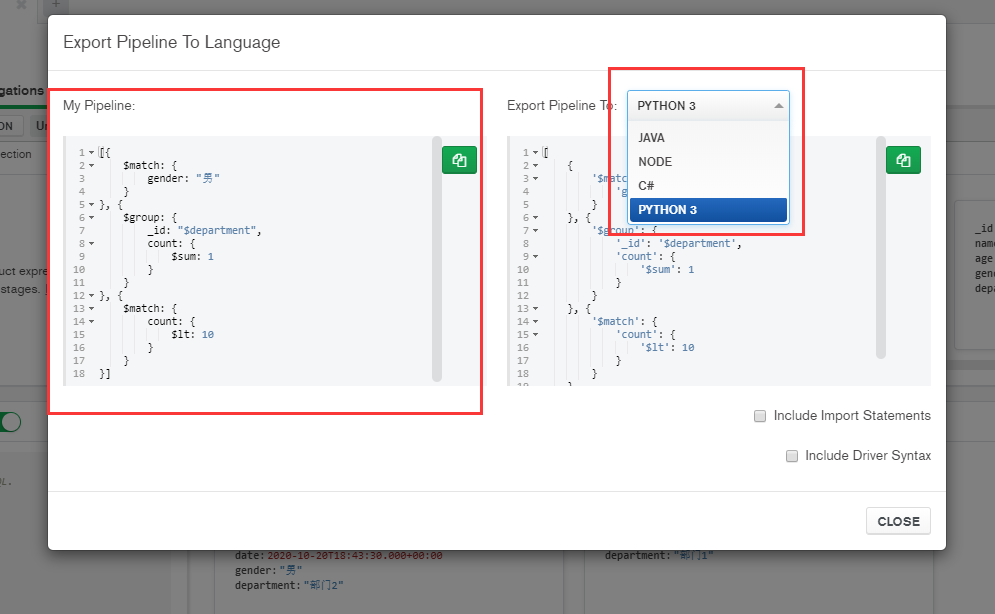
Quickly understand lookup aggregations with these examples and. But before that, this function needs to be asynchronous to work. MongoDB lookup examples including pipeline example, joins, and lookup with conditions. Then it will generate a package.json file in that folder. This command will ask you for various details, such as the name of your project, the author, the repository, and more. In an empty folder, run the following command: npm init
#MONGODB COMPASS PROJECT INSTALL#
If not, go to to download and install it. We will create endpoints for creating data, reading data, updating data, and deleting data (basic CRUD operations).īut before we get started, make sure you have Node installed in your system.

ask yourself if you made the right architecture decisions when you find yourself frequently using $lookup.In this article, we'll build a RESTful API using Node, Express, and MongoDB. That's a lot of $lookups.and starts to beg the question "WHY NOT JUST USE SQL".

This will require one UGLY Mongo aggregation where you aggregate likes, comments, etc for a given post. Let's say you want to display a users most liked blog posts. If you use MongoDb for this use case, you can quickly find yourself in trouble (especially if each entity is represented by it's own collection!) MongoDB Compass is a powerful GUI for querying, aggregating, and analyzing your MongoDB data in a visual environment. This is a lot of RELATIONSHIPS to manage. A typical blog comes with Users, Posts, Comments, Likes, Followers, etc. To further illustrate, let's say you set up a blog using Mongo. Remember that one of the key advantages of MongoDb is faster performance with unstructured data.the irony. Remember that a $lookup operation comes with the cost of performing a JOIN operation on your collections.

While it's good that $lookup exists in MongoDb, it goes against every reason why you would use MongoDB vs another relational datastore (MySQL). Remember that $lookup can be used for both equality checks (first example) as well as more complex sub-queries (second example).ĭepending on which type of query you run, $lookup will take slightly different parameters (let, pipeline vs localField, foreignField).įor more on the aggregation pipeline, be sure to check out this 5 minute guide to the MongoDB aggregation framework. Is there anything else you’d like to see in Compass Let us know by submitting suggestions in out feedback forum. Contributing For contributing, please refer to CONTRIBUTING.md For issues, please create a ticket in our JIRA Project.
#MONGODB COMPASS PROJECT CODE#
You've now seen two examples of using $lookup in the aggregation pipeline. MongoDB Compass Monorepo This repository contains the source code and build tooling used in MongoDB Compass. This query adds an additional condition for returning comments whose likes count is greater than the corresponding post's likes.īy running this query, we now know if any posts have comments with more likes than the post itself :). Like the first example, this query returns the comments whose postTitle matches the title field for each post. We reference fields in the foreign collection with a single $. Notice how we use $$ to refer to the variables we defined in let. The examples are based on this sample data. In order for this database to be more user-friendly, the folks at MongoDB have provided a GUI application called Compass. We'll provide an example of each scenario. $lookup supports both basic equality matches as well as uncorrelated sub-queries.

$lookup works by returning documents from a "joined" collection as a sub-array of the original collection. $lookup allows you to perform joins on collections in the same database. Preface: New to the aggregation pipeline? Check out our 5 minute explanation before diving into these $lookup examples.Īlso be sure to understand indexing and it's performance implications before reviewing these examples.


 0 kommentar(er)
0 kommentar(er)
